The 34-year-old Priest who studied Migration Issues at the University of Naples Federico II in Naples told ACI Africa that most African immigrants in Italy come from Morocco, Algeria, Tunisia, Senegal, Nigeria, Burkina Faso, and the DRC.
Today, the Caritas office reaches out to 29,650 immigrants who are provided with healthcare, housing and legal assistance especially for those who wish to escape from sexual exploitation on the streets in Italy.
Fr. Tuyisabe says that he found the inspiration to document the experiences of immigrants in Europe from his interaction with African girls he saw languishing on the streets in Italy.
“Once every month, we visit African girls working on the streets in Italy and try to facilitate their health check-ups, documentation and legal services. These are girls who were picked from African countries and promised lucrative jobs only to end up as sex workers in Europe,” he said.
The Caracciolini Father added, “We created a friendship with these girls and listened to their stories. Their stories were so haunting. I started documenting them to create awareness on the life of migrants based on real testimonies.”
(Story continues below)
The books take the question-and-answer structure with hidden identities of the victims of sexual exploitation that Fr. Tuyisabe interacts with. He says, “I don’t give their names to protect them. I wouldn’t get their correct names if I wanted to because they hide their identities while working on the streets. Some of them also lie about their ages to avoid confrontation with authorities. You find a sixteen-year-old lying that she is 22 just to be allowed to operate on the streets.”
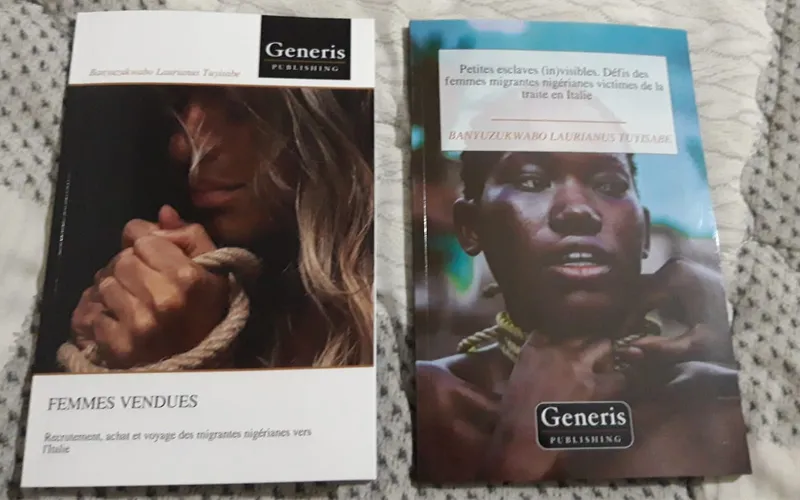 Credit: Fr. Banyuzukwabo Laurianus Tuyisabe
Credit: Fr. Banyuzukwabo Laurianus Tuyisabe
In “Sold Women”, the Congolese Catholic Priest presents poverty as the central factor driving the recruitment of young girls who are promised better lives abroad. Insecurity in many African countries, drought and hunger, and ethnic conflicts are also notable driving forces behind illegal immigration to European countries.
Victims who spoke to Fr. Tuyisabe also highlight family wrangles, forced marriages, and divorce as major contributes to illegal immigration from Africa.
Apart from evangelical pastors, women who have been exploited in Europe also go back to their home countries and devise structures through which they recruit young girls in a well-organized human trafficking system, the CRM member says.
After recruitment, the young girls are taken to native doctors where they enter “an oath of obedience”, with their recruiters promising to cater for all their travel expenses to Europe as well as their stay there.
According to the Catholic Priest, however, the promises are never met and the young girls are forced to work for years to pay for their huge traveling costs and other expenses.
Fr. Tuyisabe narrates the story of a 16-year-old African girl he met on the streets of Italy who was working to settle a 55,000-Euro debt.
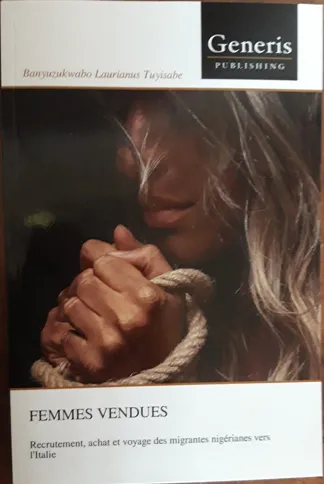
Credit: Fr. Banyuzukwabo Laurianus Tuyisabe
“The woman signed against the amount thinking it was in African currency. She didn’t know it was Euros. Even though she was sleeping with about 12 men every day, she knew that it would take her many years to settle the debt,” the Italy-based Catholic Priest said.
He said that a small section of people leaving Africa for Europe have the necessary documentation and take flights. A majority, however, travel by road, through Niger and Libya and take boats to Italy.
It is a dangerous journey, the Congolese Priest says, and explains, “There is a lot of corruption on the roads. The jeeps take more people than they are allowed to. You find a jeep that’s allowed to carry 10 passengers ferrying 40 people instead. Deadly accidents happen.”
He says that in some cases, jeep owners abandon their passengers “in the middle of nowhere”, exposing them to robbers, rapists and murderers. “Stories of migrants who die in the desert and at sea are out here for all to read. The journey of illegal immigration is riddled with all forms of danger,” Fr. Tuyisabe says.
In “Small Unseen Slaves”, the Priest who studied Sacred Theology at TUC explores the challenges that young girls face on streets in Italy, including exposure to various diseases, staying in the cold, being caned and undergoing other forms of assault. Some, he said, are gotten rid of by their masters by being maimed and killed.
“Many of the girls go on the streets unwillingly. They are treated as animals. You find a girl sleeping with 20 men a day and getting no money from it,” Fr. Tuyisabe says.
“The girls stay out in the cold during winter. They stay on the streets that have no toilets and no lights. They are supposed to have many illnesses,” he says, and adds, “They are monitored every second and are not allowed to escape. Most times, their passports are confiscated so they stay on the streets hopeless. They are beaten, their private parts are cut off and some are eventually killed.”
The solution to illegal immigration, the Priest told ACI Africa, is sensitizing populations in various African countries on the dangers of the vice.
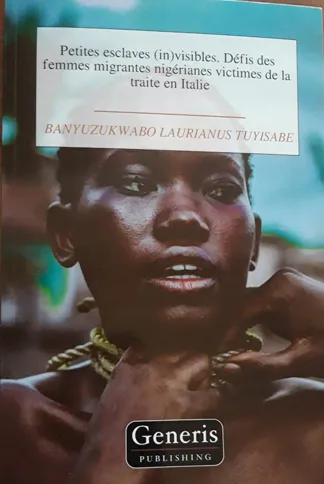 Credit: Fr. Banyuzukwabo Laurianus Tuyisabe
Credit: Fr. Banyuzukwabo Laurianus Tuyisabe
“People should always know the place they are going before they embark on their journey to Europe. They should be clear about the particular project they are going to work on rather than just travel blindly to search for a job,” the Catholic Priest who has been published in the fields of migration and management of Church properties said.
His advice to African governments is to be specific on migration laws that are complete with punishment for perpetrators of illegal immigration.
Meanwhile, the Congolese Priest has expressed joy in the anticipated visit of Pope Francis to the central African country saying, “It is great news. It is a sign of hope and consolation that God has not forgotten us.”
This story was first published by ACI Africa on 9 March 2022.
Agnes Aineah is a Kenyan journalist with a background in digital and newspaper reporting. She holds a Master of Arts in Digital Journalism from the Aga Khan University, Graduate School of Media and Communications and a Bachelor's Degree in Linguistics, Media and Communications from Kenya's Moi University. Agnes currently serves as a journalist for ACI Africa.



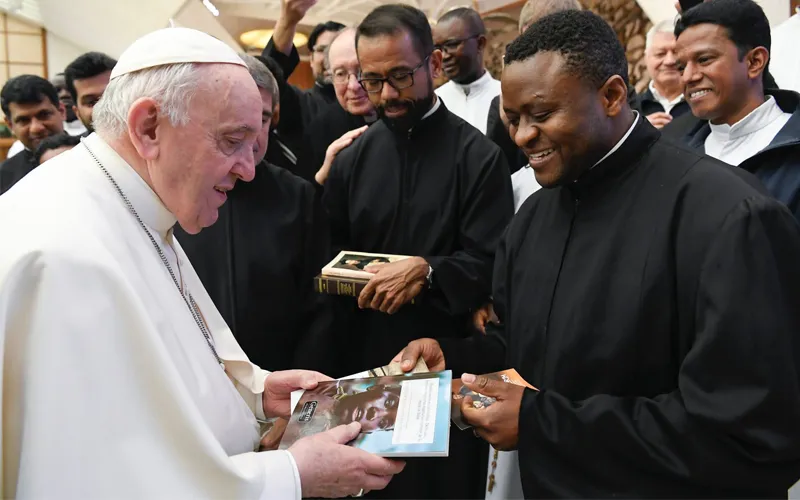
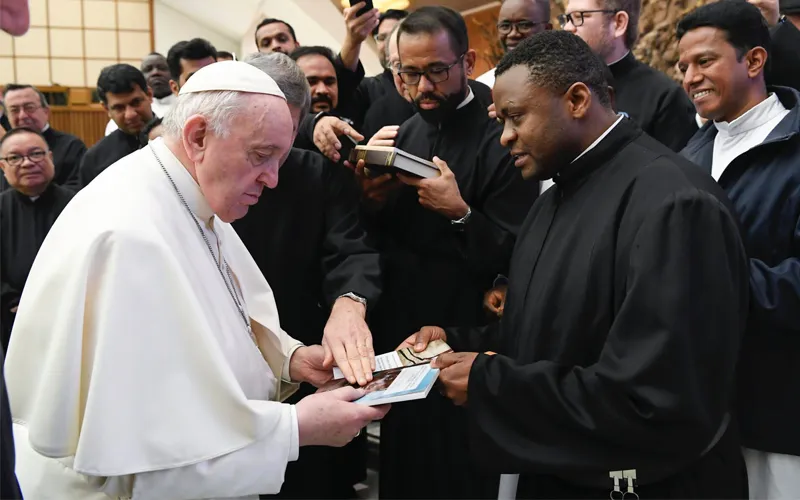 Credit: Fr. Banyuzukwabo Laurianus Tuyisabe
Credit: Fr. Banyuzukwabo Laurianus Tuyisabe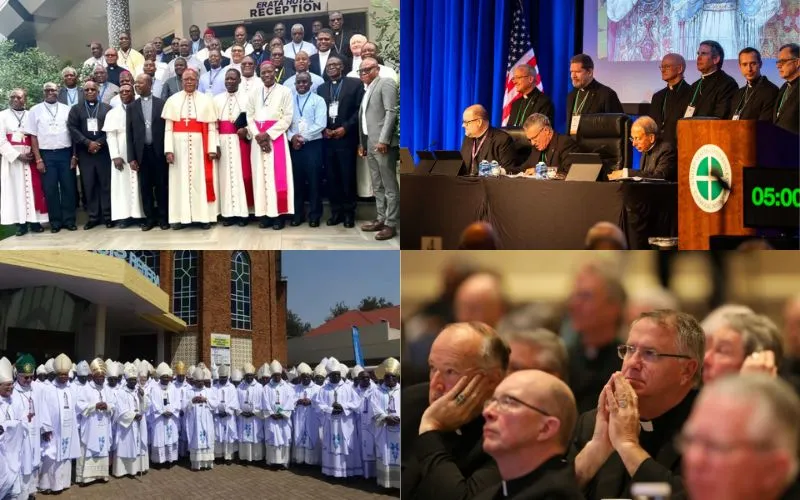
 Credit: Fr. Banyuzukwabo Laurianus Tuyisabe
Credit: Fr. Banyuzukwabo Laurianus Tuyisabe
 Credit: Fr. Banyuzukwabo Laurianus Tuyisabe
Credit: Fr. Banyuzukwabo Laurianus Tuyisabe


